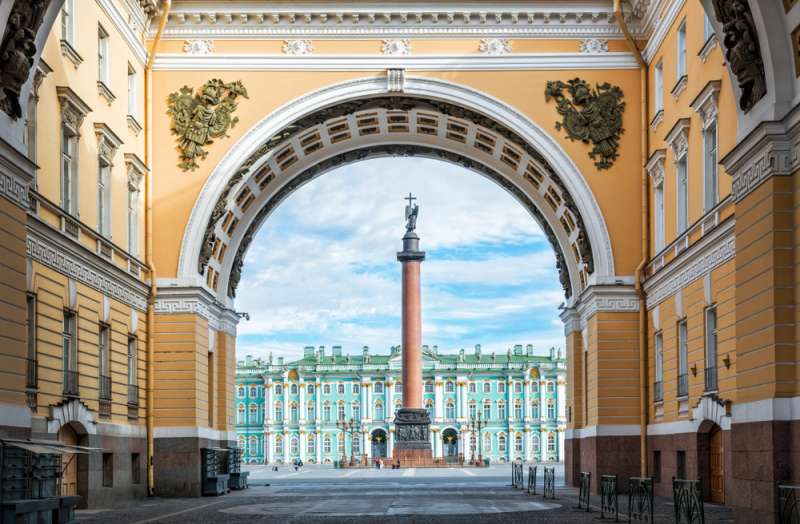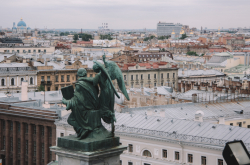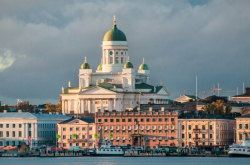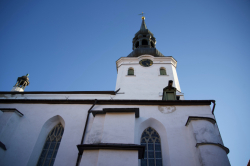This year, the Center of Social and Humanities Knowledge is launching the Navigating St. Petersburg's Culture course for ITMO University students interested in learning more about the history and culture of the Northern Capital. Everyone is welcome to join the course, regardless of their faculty and year of studies. To sign up, students should fill out a short form by October 2.
“The discipline is designed for any educational level, although, of course, we mainly focus on first-year students who have just arrived in St. Petersburg,” says Daria Martynova, senior lecturer of the course and assistant at ITMO’s Faculty of Technological Management and Innovations. “We are trying to introduce them to St. Petersburg’s culture, to show the city in all its historical and cultural diversity, and above all, to make the environment of a huge metropolis more comfortable for our students and to help them adapt to a new cultural space. Last year, the course piloted with success – about 400 students signed up. Now, this discipline is included in the electives and the grade for it will be in the diploma supplement. But we would like the main measure of our course to be love for St. Petersburg, understanding of its cultural diversity, and the desire to continue navigating St. Petersburg's culture.”
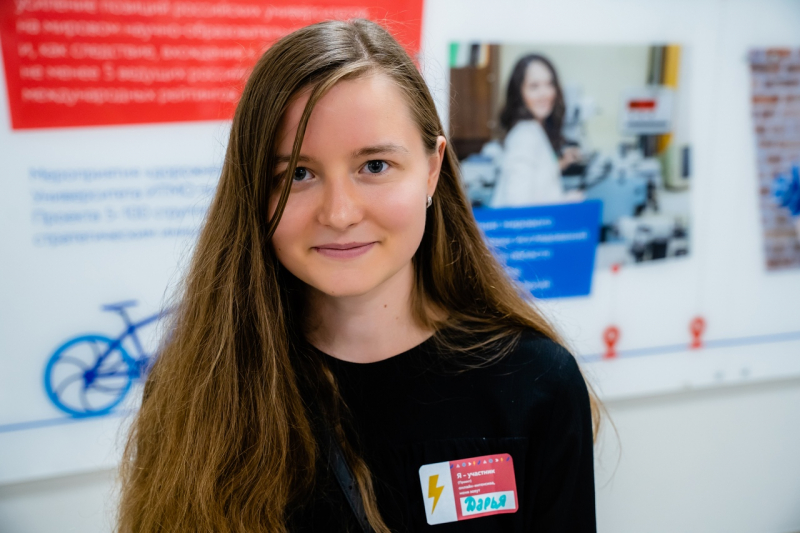
The program is primarily focused on active immersion in the cultural environment, interactive classwork, and interdisciplinary collaboration. By creating their works and participating in project activities, students can actively use not only the course material but also their professional competencies.
During the course, students will be assisted by their professors in creating interactive maps, developing theme routes, as well as taking part in quests and challenges with the use of visualizations. In general, the course has three main components: lectures, direct work in urban spaces, museums, and theaters, and creation by students of their own creative works.
Lectures: from the imperial capital to the industrial avant-garde
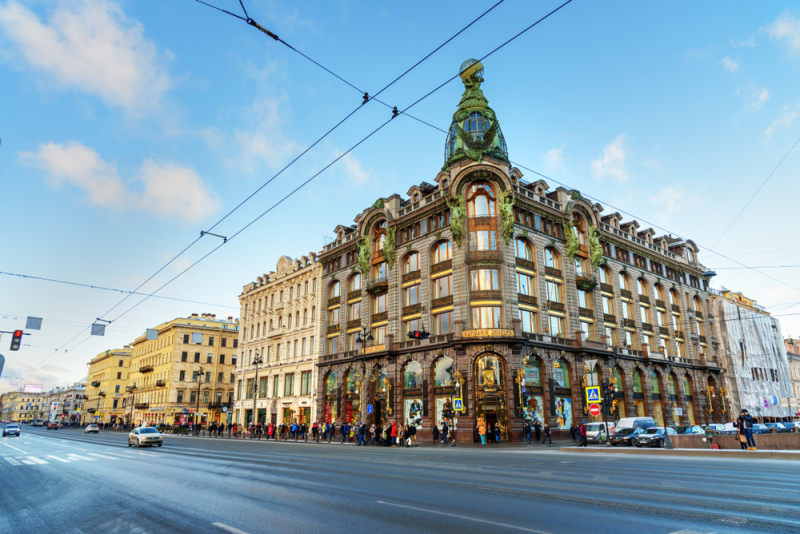
Like any other course, the students of Navigating St. Petersburg's Culture acquire theoretical knowledge during lectures. The topics of the lectures chronologically cover the period from the city’s founding to the present time. Classes are devoted to the history of the city and its architecture, arts, and the theory of urbanism. Separate hours are set aside for studying the history of ITMO University’s buildings
“We start with why St. Petersburg is considered a European city and what is its main peculiarity,” explains Daria Martynova. “We also study the urbanist aspects and talk about the structure of the city not only from a historical perspective but also from a philosophical one. We talk about urban legends, analyzing them from the point of view of modern philosophers. In total, we have seven lecture blocks: St. Petersburg as a European City, Imperial Capital, The Battle of Classics and Eclecticism, Avant-garde and Industrial Areas of the City, Cultural Clustering of the City, and others.”
This semester, classes will be held online due to risks brought on by the pandemic. But interactive practical classes will be held in the city with all precautions taken.
Interactives: quests, theater stages, and virtual 3D reconstructions
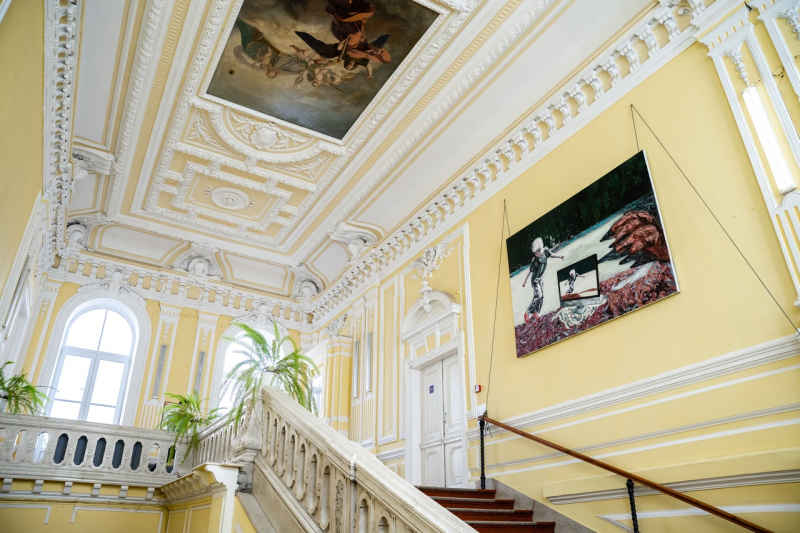
After the lectures, students have the chance to consolidate the gained knowledge in the city, where they can have a look at the monuments of whichever period of the history of St. Petersburg they’ve just studied. This part of the course takes place in the form of interactives: guided tours, game quests, and challenges.
“For example, after the first lecture, we take part in a challenge called the Grad Petrov (the city of Peter the Great), during which we get acquainted with the history of the Petrogradsky District and perform various tasks related to Peter's period,” explains Daria Martynova.
There are three such quests in the course program. The professors take all the necessary measures and hope that the interactive classes will be held in full or almost in full.
“The students’ favorite is the Menshikov Palace quest,” says Daria Martynova. “During this quest, students are able to explore the palace on their own by going through the game on all three floors of the palace. The game contains questions about key moments in the history of the building and Alexander Menshikov himself. Moreover, we annually arrange a challenge at one of ITMO University’s buildings – Pavel Stroganov's Mansion, which now houses the Faculty of Technological Management and Innovations. The project of our center won the ITMO.FUTURE initiative competition, and soon students, staff, and others will see a virtual three-dimensional reconstruction of one of the historic interiors of this architectural monument.”
Independent study: Peter's creation vs. Petersburg of Elizabeth of Russia

Assessment of students' knowledge and their independent study is also based on gamification and the use of digital technologies. So, based on the results of a particular block, students are encouraged to make a moodboard – a special form of presentation that allows them to reflect the mood and general impression of a particular topic.
“A moodboard is a kind of preview and presentation of a design project,” says Daria Martynova. “For example, we are asking them to make a moodboard on Petersburg of Peter the Great vs. Petersburg of Elizabeth of Russia. Usually, as a result, we make an exhibition of such students' works and post it on YouTube. Moodboards are needed to reflect the internal state and ideas of a project. We can see the student's awareness of the material. It takes five minutes to create, but then the works cause many hours of discussion.”
Prospects for staff
Staff members of the Center for Social and Humanities Knowledge note that ITMO University staff, too, have expressed a desire to get acquainted with the history and culture of St. Petersburg, especially those who, like students, recently moved to the city.
“They showed an interest in the course, but we want to create a separate program since they have a slightly different background,” concludes Daria Martynova.
The Navigating St. Petersburg's Culture course was developed by Galina Zhirkova, associate professor and head of the Center for Social and Humanities Knowledge at ITMO University, and the practical tasks of the program – by Daria Martynova, assistant at the Faculty of Technological Management and Innovations and manager of the center.
